The Leading Edge
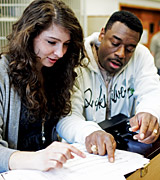 What makes for good leadership development? That’s a question that interests many Seattle Pacific University educators and staff members. After all, part of SPU’s mission is to graduate people of competence and character — the kind of people who would make strong leaders.
What makes for good leadership development? That’s a question that interests many Seattle Pacific University educators and staff members. After all, part of SPU’s mission is to graduate people of competence and character — the kind of people who would make strong leaders.“I think our personal growth and development as leaders happens best in a community where you can be vulnerable,” says Bob Zurinsky ’02, assistant director of SPU’s Center for Worship.
“Successful leaders also learn to empower the people around them,” adds Owen Sallee ’99, coordinator for Urban and Global Involvement at SPU. “So we want to focus on developing student leaders who know how to support and listen to their team members.”
Such approaches run counter to what we often hear in our culture, where shows such as NBC’s Celebrity Apprentice scream out, “Hierarchy matters”; “Leaders take charge and command”; and “You’ve got to watch out for yourself.”
To better understand student leadership development at SPU, In the Loop spoke with five staff members to learn how they keep our students at the leading edge of growth. Read their insights below.
Exclusive Q&AsHear from two students about their experiences asstudent leaders at SPU. Natalie Clements: “I Thought God Was Wrong” Sean Lomas: “Money Is a Touchy Subject” |
“Test first. Learn after.”
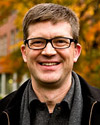 Dale Anderson, director of Student Programs, likes to use experiential learning. By that he means, “There’s no learning without reflection.”
Dale Anderson, director of Student Programs, likes to use experiential learning. By that he means, “There’s no learning without reflection.”
In other words, Anderson and other professional staff members encourage students in leadership positions to plan and run events and groups. And while the staff members are present throughout acting as advisors and “guard rails, keeping the students driving the ‘bus’ on the road,” they remain as hands-off as possible.
It’s only at the end of an event, or even at the end of the academic year during a formal leadership celebration event, that staff members lead students through a time of reflection.
“It helps them to synthesize their experiences,” says Anderson. Especially when there has been an issue, challenging decision, or mistake in the process. “It’s in those moments that real learning happens.”
“When you have to teach, you learn so much more.”
 Each year Sharon Barr-Jeffrey, assistant director of Residence Life, works with the residence life staff to provide training for SPU’s peer advisors (PAs) — the student leaders on each floor in each residence hall and living throughout the campus apartments, who serve residential students.
Each year Sharon Barr-Jeffrey, assistant director of Residence Life, works with the residence life staff to provide training for SPU’s peer advisors (PAs) — the student leaders on each floor in each residence hall and living throughout the campus apartments, who serve residential students.
One of the key approaches to developing these young leaders is to have the PAs teach their residents about topics ranging from cultural diversity to issues of identity, gender, and sexuality.
“Students often apply to be peer advisors because they want to help students or bring groups together for activities,” says Barr-Jeffrey. “But SPU sees PAs as educators.”
Each quarter, peer advisors are required to assess their residents’ needs and build educational programs to address them. For example, one female PA used the hit movie Twilight as a launching point to discuss female identity issues, even inviting in an SPU professor for a Q&A.
Being an educator is a time-consuming role for PAs. But Barr-Jeffrey says it’s an important approach: “When you have to ask, ‘How do I educate a group of people?’ it makes you more thoughtful and aware.”
“If we do it together, we’ll both grow.”
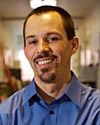 Owen Sallee, coordinator for Global and Urban Involvement, believes in working side by side with the students who oversee projects and teams in his area. He’ll even follow their lead in many cases.
Owen Sallee, coordinator for Global and Urban Involvement, believes in working side by side with the students who oversee projects and teams in his area. He’ll even follow their lead in many cases.
“I’ll share my knowledge and experience in meetings,” says Sallee. “But student leaders often see things I don’t. It’s better for us to work through ideas together.”
This differs from many institutions, where professional staff members plan and lead projects while students perform tasks to realize the plans. It can lead to polished results — but little learning for the students.
Instead, Sallee treats his student leaders as equals. Together they work to discover each person’s strengths in order to blend them to accomplish something bigger. It hinges on working through boundaries as a group, earning each others’ respect and trust.
“Sometimes hierarchy can get in the way,” says Sallee. “We empower students at SPU, and they’re more committed as a result.”
“Involvement helps students feel part of their school.”
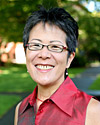 Susan Lane, director of Multi-Ethnic Programs, regularly works with students who are the first in their families to go to college. For these students — many of whom are from ethnically and economically diverse backgrounds — the university can be an overwhelming atmosphere. They don’t see extracurricular activities as part of their education.
Susan Lane, director of Multi-Ethnic Programs, regularly works with students who are the first in their families to go to college. For these students — many of whom are from ethnically and economically diverse backgrounds — the university can be an overwhelming atmosphere. They don’t see extracurricular activities as part of their education.
But Lane knows being involved is important. “Involvement in groups and in leadership can keep them from feeling alone, isolated, and different,” she says.
Plus, involvement helps with their academics. Results from the 2008 National Survey of Student Engagement demonstrated that the application of skills and the growth from experience in student organizations complement learning.
So Lane and her staff work to identify students with leadership potential, and then encourage them to seek out appropriate involvement opportunities. Many first-generation students are uncomfortable at first stepping into leadership, or may not realize they are allowed to step forward as leaders. But thanks to Lane’s encouragement, many discover they like the experience.
“It helps them realize that who they are and what they offer is of importance to the whole campus,” says Lane. “And not only that they can be involved, but like any student, they can even start their own group if there isn't one that matches their interests and passions.”
“We work to create places where people feel heard.”
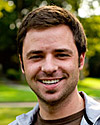 Bob Zurinsky, assistant director of SPU’s Center for Worship, says decisions in the ministry teams he oversees can take days, even weeks to make. Why?
Bob Zurinsky, assistant director of SPU’s Center for Worship, says decisions in the ministry teams he oversees can take days, even weeks to make. Why?
“We take the time that’s needed to discuss the decisions,” says Zurinsky. “We talk through conflicts and make sure everyone is heard.” As an advisor he refuses to tell the group what to do, preferring instead to earn the ability to be heard.
It’s a radical approach to supervision, but one that pays dividends in relationships and respect. And it’s an approach that all of the members of the teams follow.
“Our teams are based on a certain intimacy with each other,” says Zurinsky. “They’re grounded in the experience of community. By being vulnerable, we really grow personally.”
And that helps his various student leaders to have the confidence they need to divvy up duties and pull together in the same direction.
View Feature Story Archives


